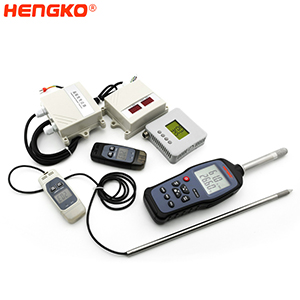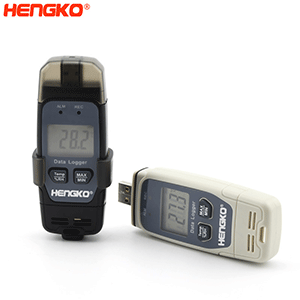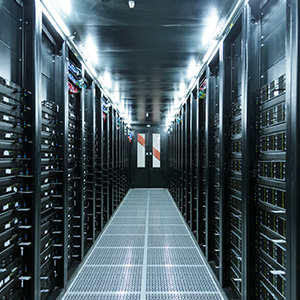Monitoring the temperature and humidity of the computer room or data center is critical to ensure uptime and system reliability. Even companies with 99.9 percent uptime lose hundreds of thousands of dollars a year to unplanned outages, according to agencies. Maintaining recommended temperature and humidity levels in data centers can reduce unplanned downtime caused by environmental conditions and save companies thousands or even millions of dollars each year.

1. Recommended equipment room temperature
Running expensive IT computer equipment at high temperatures for extended periods of time can significantly reduce component reliability and service life, and can lead to unplanned outages. Maintaining an ambient temperature range of 20 ° C to 24 ° C is the best choice for system reliability. This temperature range provides a safety buffer for equipment to operate in the event of air conditioning or HVAC equipment failures, while making it easier to maintain safe relative humidity levels.
The widely accepted standard in the computer industry is that expensive IT equipment should not be run in computer rooms or data centers where ambient temperatures exceed 30 ° C. In today's high-density data centers and computer rooms, measuring ambient temperature is often not enough.
Air entering the server can be significantly warmer than room temperature, depending on the layout of the data center and the high concentration of heating equipment such as blade servers. Measuring the temperature of data center aisles at multiple heights can detect potential temperature problems early. For consistent and reliable temperature monitoring, place a temperature sensor closer to each aisle at least every 25 feet if you are using high temperature devices such as blade servers. It is suggested that a Constant Ge temperature and humidity recorder or temperature and humidity sensor be installed on the top of each rack in the data center for measurement.
The compact temperature and humidity recorder is suitable for the machine room or computing center with narrow space. The product can measure data at specified intervals and store them in integrated data memory. HK-J9A105 USB temperature recorder provides up to 65,000 data stores and data visibility through its electronic paper display for monitoring and inspection. Abnormal alarms can be set, marked assets can be properly saved, emergencies can be timely dealt with, to avoid asset damage or failure caused by temperature overrun and modesty.

2. Recommend the humidity in the equipment room
Relative humidity (RH) is defined as the relationship between the amount of water in the air at a given temperature and the maximum amount of water the air can hold at the same temperature. In a data center or computer room, it is recommended to keep the ambient relative humidity level between 45% and 55% for optimal performance and reliability.
It is particularly important to use industrial high-precision temperature and humidity sensors to monitor data centers. When the relative humidity level is too high, water condensation may occur, leading to hardware corrosion and early system and component failures. If the relative humidity is too low, computer equipment can be susceptible to electrostatic discharge (ESD), which can damage sensitive components. Thanks to hengko reliable and long-term stability of humidity sensor technology, high measurement accuracy, transmitter optional signal output, optional display, optional analog output.
When monitoring relative humidity in data centers, we recommend early warning alerts at 40% and 60% relative humidity, and severe alerts at 30% and 70% relative humidity. It is important to remember that relative humidity is directly related to current temperature, so temperature and humidity monitoring is critical. As the value of IT equipment increases, the risks and associated costs multiply.

Media Contact
Company Name: HENGKO
Contact Person: Media Relations
Email: Send Email
Phone: 0086-755-88823250
Country: China
Website: https://www.hengko.com/